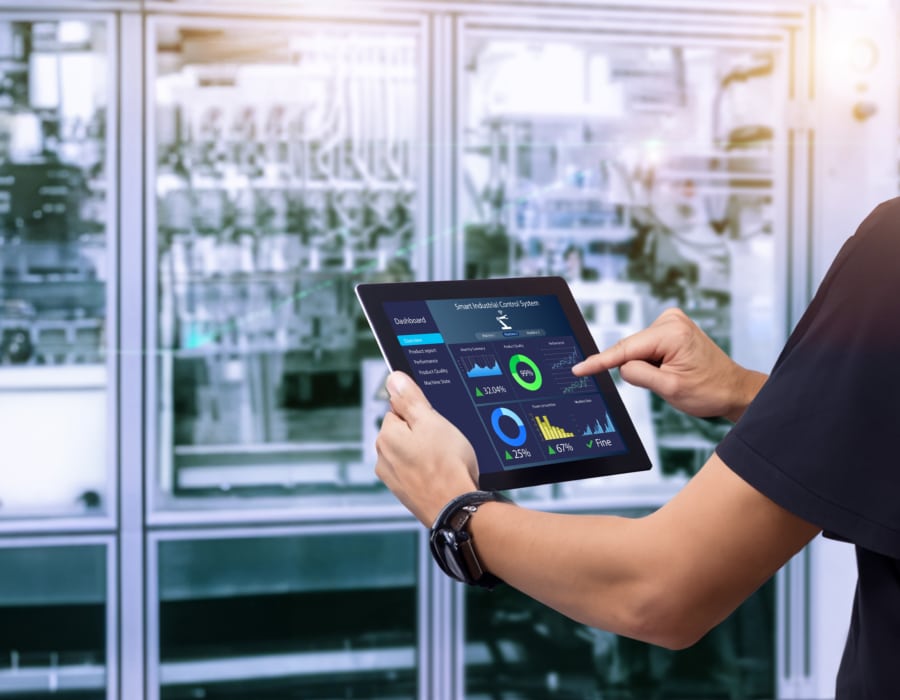
What Defines Data Quality in Sustainable Business Practices
Our industry is engaged in an important dialogue to improve sustainability through ESG transparency and industry collaboration. This article is a contribution to this larger conversation and does not necessarily reflect GRESB’s position.
Read more
Data is gold: The power of data in residential real estate
Read more
Bridging the data gap: How utilities data monitoring platforms complement building management systems for robust ESG reporting
Read more
Using data quality to improve real asset values
Read more
Unlocking investor confidence: Real estate’s path to enhanced data quality
Read more
ESG foundations: Data quality in commercial real estate
Read more
Data quality: a game changer in real estate
Read more
The foundation of GHG reporting: Data collection, consistency, and confidence
Read more
The 5-step guide to triple-net data collection
Read more
A 2050 target but no time to spare!
We are now in a critical period requiring rapid and urgent action to retrofit our buildings in a bid to address climate change. The Paris Agreement set a global imperative to restrict global warming to 2⁰C or below. To achieve this ambition, global greenhouse gas emissions need to reduce rapidly today with developed economies ultimately becoming Net Zero by 2050. We cannot afford to bide our time and cut emissions later.
Read more
Reporting tips and guidance
Reporting of sustainability and Environmental Social Governance (ESG) has evolved significantly over the years. Several organisations have matured and become leading examples; illustrating how reporting has been a way for them to better inform stakeholders, and as a tool for them to reflect on their journey and upgrade their approach to sustainability or ESG.
Read more
Tips for stress free reporting
Managing the reporting and assurance process for your company’s ESG outcomes is difficult at the best of times, 2020 is set to become even more challenging.2019 will go down as the year the world announced a clear intent to move to a low-carbon economy. In 2020 governments, institutions and businesses will have to address how they manage this transition in order to ensure the long-term sustainability of their businesses.
Read more
ESG Reporting: 5 Top Tips to get started
Environmental, social and governance (ESG) criteria are a set of standards for a company’s operations that socially conscious investors use to screen potential investments.
Read more
Putting Your Best Foot Forward with Investors: Reporting CRE ESG Data in Four Steps
We’ve entered a new era of sustainability reporting, one characterized by the need for high quality, context-based, decision useful information. Having clear and concise data helps improve decision making, accelerates the accomplishment of goals and enables transparency across organizations and stakeholders, including investors.
Read more
Increasing the Potential for Data Insights in Commercial Real Estate
Many successful decisions are made on insights provided by good data, but the challenge in any industry is defining what “good data” is exactly. GRESB, an investor-driven organization committed to assessing the Environmental, Social, Governance (ESG) performance of real assets globally has taken the initial step to define “high-quality data” with the release of their 2019 Data Quality Standard Assessment. Still in the preliminary phase, this assessment was created with the help of GRESB Governance Bodies and an Industry Technical Working Group. The Technical Working Group consists of industry experts with relevant subject matter expertise, interest in the assessment and time dedicated to fully participate.
Read more
Using the Environmental Management System Framework to Approach Data Management
As useful as data can be, it can be equally cumbersome to collect and process. To properly manage data and ensure its highest level of quality, a process should be developed. The ISO 14001 framework for Environmental Management Systems follows a Plan-Do-Check-Act cycle and can also serve as a guide to data management, as outlined below.
Read more
Why Data Quality Matters
In the case of ESG data, we expect companies to accurately report how sustainable they are. Quality really does matter, especially when it’s behind major business decisions.
Read more
ESG Data Quality: The Foundation of an Impactful ESG Program
Successful ESG programs in commercial real estate often share one key characteristic with the assets they represent: a strong foundation. Just as a building requires proper framing and construction at its base to maintain stability, ESG programs rely critically upon high-quality ESG data if they are to function as desired. Only with information that is effectively collected, aggregated, and analyzed can you appropriately set baselines, establish metrics and key performance indicators, and track progress toward organizational goals.
Read more
From Data Woes to Data Bliss: 7 Steps to Improve the Quality of Your ESG Data
Data may be kryptonite to many, but it’s essential for all. Good data—data that is accurate, comparable and easy to understand—allows sustainability managers to evaluate performance and provides incisive insights to help asset managers make informed investment decisions.
Read more
Simple factors to consider when collecting ESG performance data
The success of our decision-making in life can be impacted by the quality of data which is used to inform this decision. High-quality data gives us the confidence to make decisions efficiently and effectively. This could be something as simple as deciding what time you need to wake up in order to make your 9 am meeting. We use data as the basis for making this decision. For example, how long it takes for me to walk to the train station, and how likely it is that my train will be delayed or canceled?
Read more